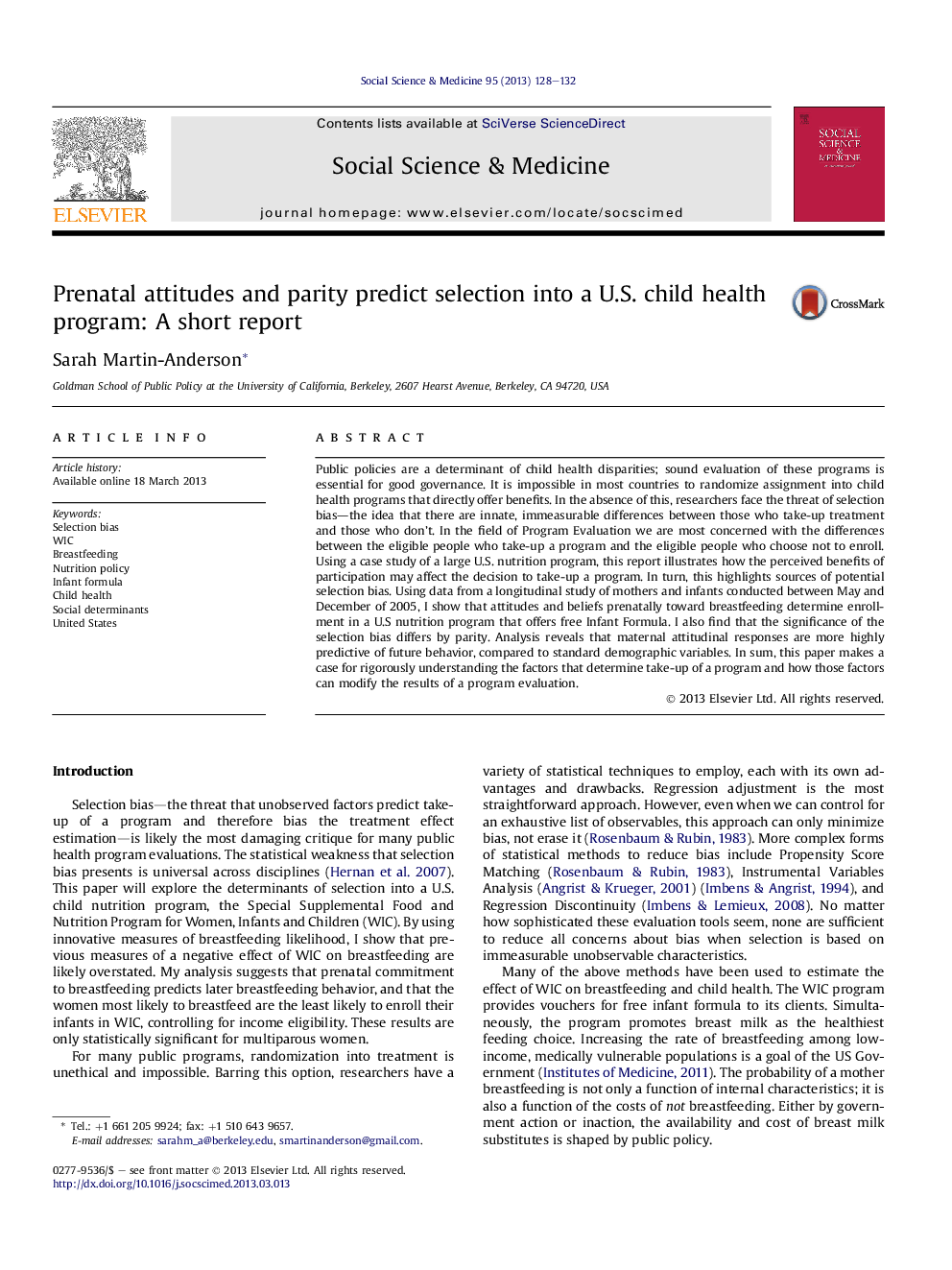| کد مقاله | کد نشریه | سال انتشار | مقاله انگلیسی | نسخه تمام متن |
|---|---|---|---|---|
| 952299 | 1476073 | 2013 | 5 صفحه PDF | دانلود رایگان |
• Prenatal perceptions of program benefits may influence postnatal enrollment in a child health program.
• Attitudinal responses are more highly predictive of commitment to breastfeeding than standard demographic characteristics.
• Beliefs and attitudes about breastfeeding predict future behavior, even after controlling for maternal demographics.
• Past estimates of a US nutrition program's effects on breastfeeding are likely overstated for multiparous mothers.
Public policies are a determinant of child health disparities; sound evaluation of these programs is essential for good governance. It is impossible in most countries to randomize assignment into child health programs that directly offer benefits. In the absence of this, researchers face the threat of selection bias—the idea that there are innate, immeasurable differences between those who take-up treatment and those who don't. In the field of Program Evaluation we are most concerned with the differences between the eligible people who take-up a program and the eligible people who choose not to enroll. Using a case study of a large U.S. nutrition program, this report illustrates how the perceived benefits of participation may affect the decision to take-up a program. In turn, this highlights sources of potential selection bias. Using data from a longitudinal study of mothers and infants conducted between May and December of 2005, I show that attitudes and beliefs prenatally toward breastfeeding determine enrollment in a U.S nutrition program that offers free Infant Formula. I also find that the significance of the selection bias differs by parity. Analysis reveals that maternal attitudinal responses are more highly predictive of future behavior, compared to standard demographic variables. In sum, this paper makes a case for rigorously understanding the factors that determine take-up of a program and how those factors can modify the results of a program evaluation.
Journal: Social Science & Medicine - Volume 95, October 2013, Pages 128–132
